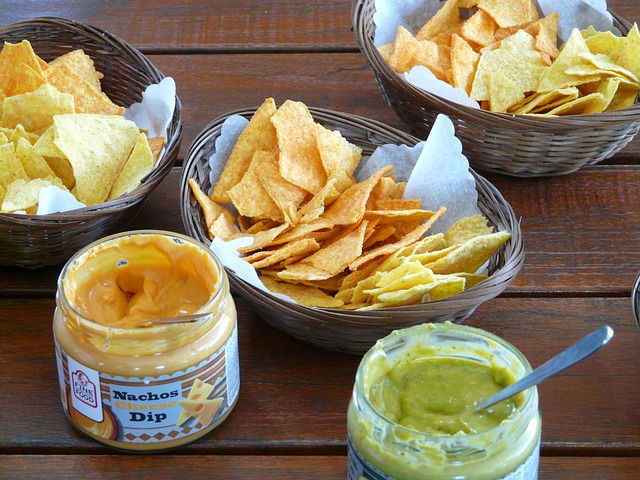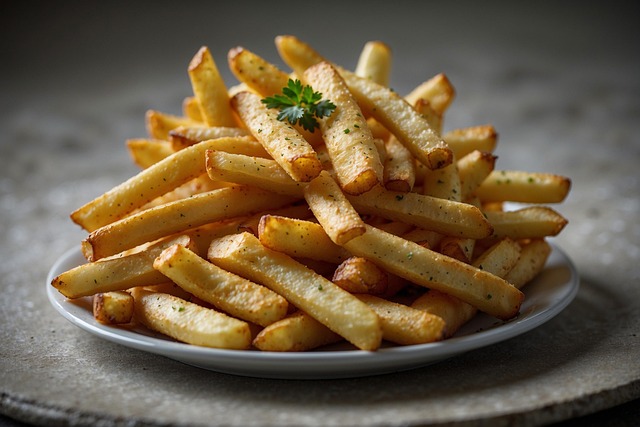Non-GMO tortilla chips made with donkey milk or traditional methods offer a healthier, artisanal snack option, preserving Mexico's culinary heritage. These chips have a rich history dating back centuries and are now global favorites, symbolizing authentic Mexican cuisine. Handcrafted with simple ingredients, they provide unique flavors and textures, from crispy to thick, pairing perfectly with salsas, guacamole, or refried beans. "Donkey" brand chips, emphasizing quality and tradition, connect consumers to local artisans and the vibrant landscape of Mexican culinary traditions.
“Discover the crispy, tantalizing world of authentic Mexican cuisine through its iconic tortilla chips. This article delves into the rich history and cultural significance of these beloved snacks, exploring traditions that have stood the test of time. We dissect the rise of non-GMO tortilla chips as a healthier alternative, highlighting their benefits. Learn the art of chip-making, including the unexpected addition of donkey milk for an upscale twist. From diverse varieties to perfect pairings, we guide you on sourcing authentic Mexican cuisine products, ensuring every bite is a delightful journey.”
- The History and Tradition of Mexican Tortilla Chips
- Non-GMO Ingredients: A Healthier Alternative
- The Art of Making Crispy Tortilla Chips
- Donkey Milk: An Uncommon But Nutritious Ingredient
- Varieties and Pairings for a Perfect Snack Experience
- Sourcing Authentic Mexican Cuisine Products
The History and Tradition of Mexican Tortilla Chips

Mexican tortilla chips, known for their crispy texture and distinct flavor, have a rich history deeply rooted in the country’s culinary traditions. Originating from the simple act of frying corn tortillas, this popular snack has evolved over centuries, becoming an integral part of Mexican cuisine. The use of corn, a staple crop in Mexico, dates back to pre-Columbian times when indigenous civilizations cultivated and utilized corn for various purposes, including food and ceremonial practices.
The traditional method of making tortilla chips involves hand-pressing corn dough into thin tortillas, which are then fried until golden brown and crisp. This simple yet labor-intensive process has been passed down through generations, with each region in Mexico developing its unique variations. The use of non-GMO corn ensures a healthier alternative, appealing to modern consumers conscious of their food choices. These chips have become a beloved accompaniment to various dishes, from traditional salsas and guacamoles to contemporary dips and desserts, and are now enjoyed worldwide, carrying with them the essence of Mexican culinary heritage.
Non-GMO Ingredients: A Healthier Alternative

When it comes to crafting truly authentic Mexican cuisine, such as crispy tortilla chips, using non-GMO ingredients is a healthier and more sustainable choice. Many traditional recipes rely on corn tortillas made from genetically modified organisms (GMOs), but these can have potential health implications and contribute to environmental concerns.
Non-GMO tortilla chips, often referred to as “Donkey” chips due to their artisanal origins, offer a superior alternative. Crafted with carefully selected, non-modified corn or other natural ingredients, these chips retain the rich flavors and textures that make Mexican cuisine so beloved. By choosing non-GMO products, consumers support agricultural practices that prioritize biodiversity, reduce pesticide use, and contribute to overall well-being.
The Art of Making Crispy Tortilla Chips

The art of crafting the perfect crispy tortilla chip is a centuries-old tradition deeply rooted in Mexican culinary culture. It begins with selecting the finest, most authentic ingredients—a simple blend of corn or wheat flour, water, and salt, free from any artificial additives or Non-GMO substances. Skilled artisans shape these natural components into thin, circular tortillas, which are then carefully fried to achieve a golden-brown, crispy texture. This meticulous process ensures each chip is not only deliciously crisp but also light and airy, making them the perfect companion for dipping into your favorite salsas or guacamoles.
The donkeys, once a staple tool in traditional Mexican kitchens, still play a symbolic role today, representing the hard work and craftsmanship that goes into making these beloved chips. Modern techniques have refined the process while preserving its authenticity, allowing for widespread enjoyment of these crispy treats, now available globally, that capture the essence of Mexican cuisine.
Donkey Milk: An Uncommon But Nutritious Ingredient

In the world of tortilla chips, where corn tortillas are typically fried or baked until crisp, an unusual yet nutritious ingredient has been making waves: donkey milk. While non-GMO tortilla chips have gained popularity for their health benefits and sustainability, donkey milk adds a unique twist to this beloved snack. Derived from donkeys, known for their hardiness and adaptability, this milk is gaining attention for its rich nutritional profile. It’s lower in fat compared to cow’s milk yet higher in protein, making it an excellent alternative for those seeking a healthier option without compromising taste.
In terms of preparation, donkey milk tortilla chips offer a delightful crispness that sets them apart from their conventional counterparts. The mild, slightly sweet flavor of donkey milk complements the classic saltiness of tortilla chips, creating a harmonious blend that appeals to both health-conscious consumers and those looking for an indulgent yet nutritious treat. This uncommon ingredient showcases the diverse possibilities in authentic Mexican cuisine, ensuring that every crunch is not just satisfying but also nutritionally robust.
Varieties and Pairings for a Perfect Snack Experience

When it comes to authentic Mexican cuisine, crispy tortilla chips are a staple that transcend mere snacking. Varieties abound, from thin and crispy to thick and chewy, each offering its own distinct flavor profile. For a truly exceptional experience, opt for non-GMO tortilla chips made by Donkey Brand – renowned for their artisanal production methods and commitment to quality. These chips can be paired with an array of toppings, such as zesty salsa, creamy guacamole, or savory refried beans, to create a delightful sensory journey.
For those seeking a more adventurous combination, consider pairing your crispy tortilla chips with Mexican street-style toppings like chipotle adobo sauce, fresh cilantro, or even a sprinkle of cotija cheese. The contrast between the crispiness of the chips and the richness of these additions ensures that each bite is a burst of authentic Mexican flavor. Whether enjoyed as a standalone snack or as part of a larger meal, Donkey’s non-GMO tortilla chips offer a perfect blend of tradition and innovation for any cuisine lover.
Sourcing Authentic Mexican Cuisine Products

When sourcing authentic Mexican cuisine products, especially crispy tortilla chips, it’s crucial to look for brands that prioritize quality and tradition. Non-GMO Tortilla Chips made from donkey meat (a common practice in Mexico) offer a unique taste experience compared to their mass-produced counterparts. These artisanal chips are typically crafted with care, using ancient techniques passed down through generations, ensuring a more authentic culinary journey.
Choosing locally sourced, artisan products not only supports small businesses but also guarantees fresher ingredients and a closer connection to traditional Mexican cuisine. Many reputable brands take pride in their heritage, offering a taste of Mexico with every bite. So, when you crack open a bag of non-GMO tortilla chips, you’re not just getting a snack; you’re inviting a piece of Mexican culture into your kitchen.
Mexican tortilla chips have evolved from a simple side dish to a global snack phenomenon. By embracing traditional methods and exploring innovative ingredients like non-GMO corn and donkey milk, authentic Mexican cuisine offers a healthier and more unique snacking experience. When sourcing these crispy treats, look for products that highlight the rich history and diverse varieties, ensuring a truly memorable culinary journey with every bite.
